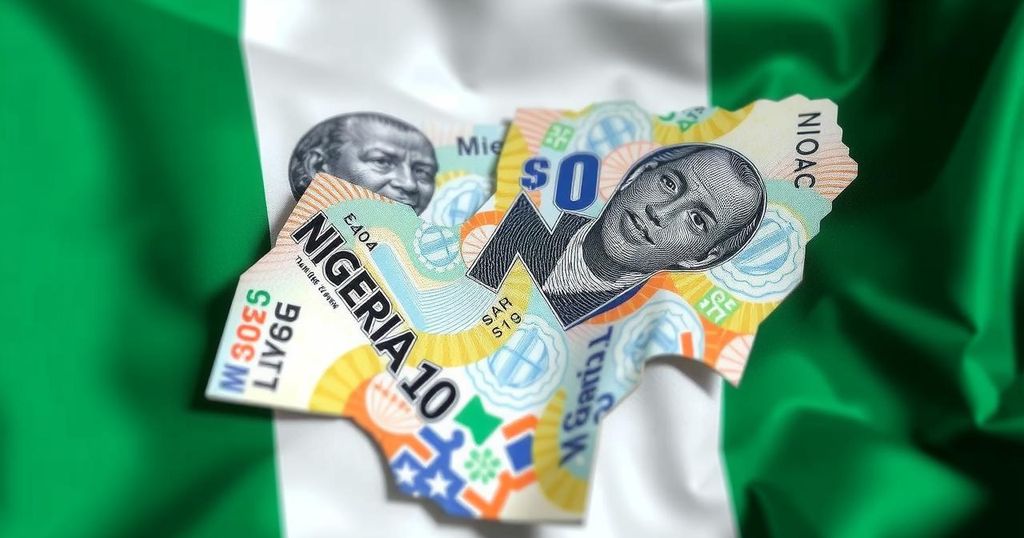World Bank Reports Positive Shift in Nigerian Currency Amidst Economic Reforms
The World Bank describes Nigeria’s naira as one of the most competitive in 20 years due to reforms by Bola Tinubu’s government. The floatation of the naira and removal of fuel subsidies have averted fiscal collapse but worsened poverty and raised civil unrest concerns. The World Bank urges the continuation of these policies, which could yield significant economic transformation in the long term.
Recent reforms instigated by the administration of Bola Tinubu have reportedly positioned the Nigerian naira as one of the most competitive currencies in the past two decades, as stated by Indermit Gill, the chief economist of the World Bank. The decision to float the naira alongside the removal of fuel subsidies has been pivotal in averting a potential fiscal crisis. However, Gill acknowledges that while these measures have led to a marked devaluation of the naira, resulting in heightened poverty and apprehensions regarding civil unrest, it is crucial for Nigeria to remain committed to the reforms. Gill described the current exchange rate as a significant opportunity for the private sector amidst these changes. Prior to Tinubu’s reforms in 2023, the official exchange rate hovered below NGN500 per dollar, contrasting starkly with the parallel market rate, which was estimated at around NGN900. The ongoing depreciation of the naira has been a catalyst for surging prices, indicating a pressing need for the government to protect its most vulnerable citizens. This includes the establishment of social safety nets funded by the savings accrued from the elimination of the fuel subsidy. Despite the challenges and the call from some quarters for the abandonment of the floating exchange rate system, Gill urged the Nigerian government to persevere with its current approach, asserting, “This is only the beginning. Nigeria will need to stay the course for at least another 10 to 15 years to transform its economy. It is very difficult to do these things, but the rewards are massive.” Furthermore, he emphasized the importance of enhancing short-term financial assistance to impoverished households in order to alleviate the immediate impacts of the naira’s devaluation.
The context surrounding Nigeria’s currency and economic reforms involves a series of critical decisions made by the current government aimed at stabilizing the economy. The floatation of the naira and the withdrawal of fuel subsidies are central to these reforms, as they were introduced to address the significant disparities between the official exchange rate and the parallel market rates. Understanding the ramifications of these reforms is essential to comprehending the current economic climate in Nigeria. The reforms come against a backdrop of rising poverty levels, and they necessitate a careful balance between fiscal responsibility and the welfare of the populace.
In summary, the World Bank has posited that the reforms under Bola Tinubu have positioned the naira competitively within the global market, despite the associated challenges of increased poverty and potential unrest. The future of the naira and Nigeria’s economy hinges on the government’s ability to navigate the complexities of currency management while ensuring protection for its most vulnerable citizens. The commitment to sustained reforms over the coming years, as indicated by World Bank representatives, could yield significant long-term benefits if successfully maintained.
Original Source: news.bitcoin.com




Post Comment